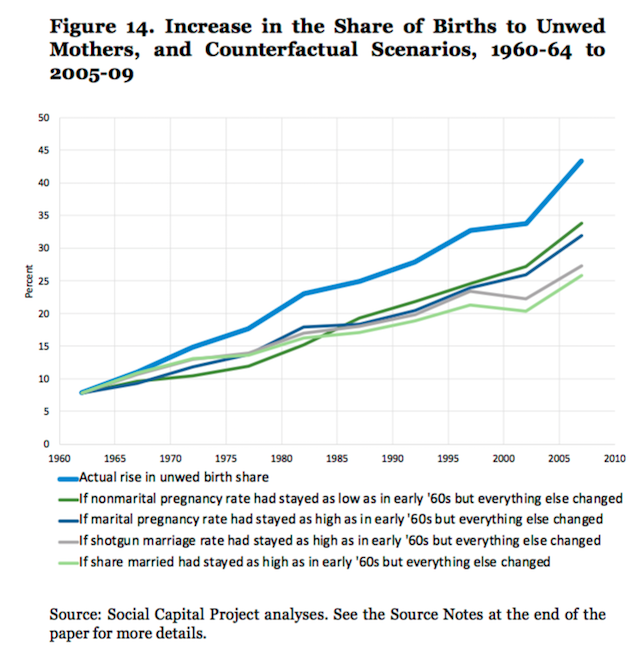This post is beyond the contest between consequentialism and deontology, before anyone starts firing up his philosophy brain.
I notice in our society there is a profound resistance to judging actual outcomes, whether it is a public program, government service, educational process, or even a workout routine.
The tendency is to try to judge either the process for its own sake or to judge the intended outcomes of the process.
A workout program seems fun at the gym – it’s a great program! But… did you gain strength and muscle, cut fat, or increase your athletic capacity?
We can’t abandon homework in schools – kids need that practice to do well on the tests. Is there actually a correlation between assessment grades and homework completion?
Let’s think even broader:
Does birth control cause out of wedlock pregnancy?
“What? Of course, it doesn’t! The point is to prevent pregnancy, doofus!”
But, if we judge outcomes and look at the entire cohort (society), it seems that birth control does cause pregnancy outside of marriage, as least for most of the common types..
https://www.nytimes.com/interactive/2014/09/14/sunday-review/unplanned-pregnancies.html

This is probably related to behavior that is the result of the belief that birth control works; I think it is quite difficult to say the behavior would exist in the absence of birth control when everybody knows what sex naturally leads to. Birth control actually does work, but as time goes on, failure becomes almost a certainty, like with any rare event over time. A kind of Black Swan.
When you take a big step back like this, it becomes necessary to question all sorts of assumptions.
I think our culture is resistant to this because people often become invested in the processes that are instituted in society. People have all sorts of government jobs that, when judging by outcomes, are superfluous. They have family that wants them to keep their jobs.
And of course, nobody wants to admit that they are wrong about something, so outcomes are best ignored.
Can you think of any great examples?





Initial state: extreme stigma against out-of-wedlock births especially because they signify extramarital sex, which still is looked down on.
Pill legalized. Chance of pregnancy from any particular sex act goes way down. Chance of having a bastard plummets, and so people feel able to have more extramarital sex.
Even if birth control is used consistently and correctly, repeated acts raise the cumulative failure rate. (If something is 90% effective, then after two times, it’s 81% that it worked both times, 72.9% that it worked three times in a row, and so on. So cumulative failure rate is 10%, 19%, 27.1%, and so on…)
Increase in out-of-wedlock births (and sex) leads to campaigns to normalize the situation and erase the loss in status that women used to receive for this. Part of this leads to the legalization and attempted normalization of abortion.
But that just expands out the example given. As for other examples…
Man-caused climate change
Efficacy of gun control laws (though some now say the laws are working as intended, just not the way people said they were supposed to work)
Benefits of unrestricted immigration (same caveat as gun control)
Benefits of free trade/globalism
I am sure there are more. Those are the ones that come off the top of my head.
A lot of internal security measures that are imposed by upper management tend to follow a predictable pattern. Somebody notices the line item for “office supplies” and decides that it’s too high. A lock is installed on the office supply storeroom with the office manager given the only key.
Week one: Everybody goes and finds the office manager to get staples and printer paper. Each item is carefully written on the log.
Week two: The office manager is sick of being constantly bothered and gets duplicate keys made at the hardware store to hand out to trusted employees.
Week three: Constantly unlocking the door is a pain. Somebody puts masking tape over the latch so it won’t secure.
End result? The employees figure if they are going to be treated like thieves they are going to ask like thieves. Shrinkage increases.
Awesome anecdote. I have absolutely seen similar with schools trying to limit copies.
People copy everything covertly
The cost of copies goes up as people stop worrying about it.